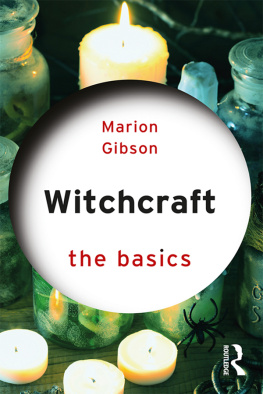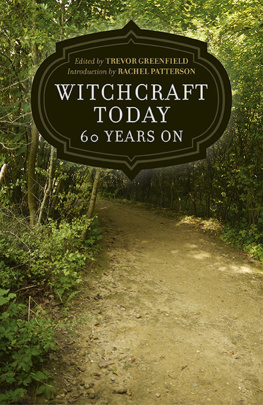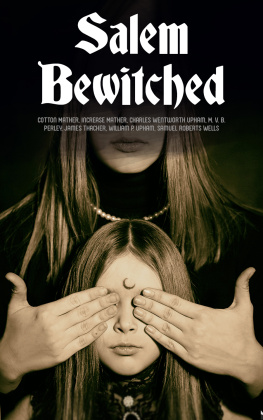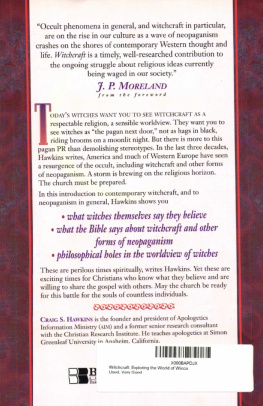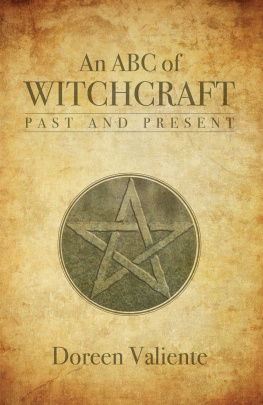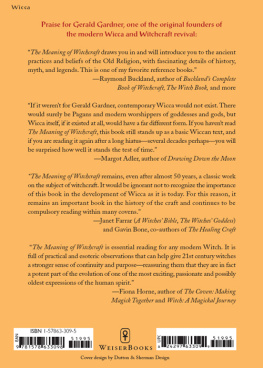WITCHCRAFT.
St. Monans.Warlocks and all them sort of elves have no shadow.JACK, p. 94.
Buckhaven.Witches are the warst kind of devils, they mak use of cats to ride upon, or kail-kebbers [cabbage-stumps], and besoms, and sail over seas in cockle-shells, and witch lads and lasses, and disable bridegrooms.GRAHAM, p. 236.
AberdourI have myself conversed with an old woman who accounted for the lameness of an ancient crone, whom she had in her childhood seen, by an injury she had received when returning from one of her witch journeys. The form she had assumed was that of a black cat; and when she was about to enter her house, through a broken pane, a man passing with a hedge-bill in his hand, struck the animal on the leg, and the witch was lame ever afterwards.ROSS, p. 327.
Carnock.At Loanside lived a witch noted for calling up the spirits of the dead, and prophesying the movements of the living, transforming herself at will into inconceivable shapes, such as a March-hare. As an illustration of the Gleds power, a cow was grazing on the Clune road, and, slipping her hand over its back as she passed, it was observed from that hour its udder withered and ceased yielding any more milk. If she happened to spy a kirning it would yield or not yield butter as she wished. Adam Dale, a well-to-do farmer of Bal, actually consulted and obeyed her as to remedies for ills that cattle and folk are heir to, and like Endor of old, could hold the cat and play kitlin. On his last visit, a cinder sparked out of her fire in the form of a coffin, and he never again returned, but died shortly after.
ALLAN, pp. 29, 30.
Dunfermline.Auld Bessie Bittern... was regarded as one who was no very canny, and whom it was unsafe to disagree or to meddle with, and whose curses or prayers were equally to be dreaded. Even her big black cat did not escape suspicion.... One day Bessie appeard at the side of Johnnie K.s loom, and said to him, Johnnie, yell gang the morn and howk my wee pickle tattieseh? Deed an hell do naething o the kind, shouted Kirsty, his wife from the kitchen, He has mair need to dad awa at his loom, an get his cut oot. Bessie replied, Hell may be no get his cut oot any the sooner for no howkin my wee pickle tatties. Yell better let me gang, said Johnnie to his wife, in a submissive tone. Yell no gang your tae length, said Kirsty. Ye auld neer-be-gaun jade, an yell no let him howk a wee pickle tatties for a puir auld body like me! Yell no be ony the richer fort, I weell a wat! Noo mind ye, Im tellin ye! shouted Bessie, as she toddled out of the shop, followed by her black cat.
Johnnie had scarcely resumed his work, when out flew his shuttle, and fell on the floor. He got off his loom and lifted it up, and then tried again, but with a like result. Out it sprang once more, giving him the trouble and delay of going for it, and lifting it with a sad, sorrowful heart, and a deep sigh. He considered himself bewitched, and it appeared as if a judgment had come upon him sooner than he expected. He then, as his only resource, took the shuttle to the kitchen, and sitting down before the fire... in order to break, if possible, the spell that hung over him, he began by solemnly drawing the shuttle three times through the smoke, dolefully saying as he did so, I kent hoo it wad be, I kent hoo it wad be! He then turned to his wife and said, O Kirsty! ye micht hae mair sense than contrar that auld witch Bessie Bittem.STEWART, pp. 143, 144.
Interior of Fife.An aged woman, bearing the character of a witch, lived alone in a miserable hovel, situated on an extensive moor in the centre portion of Fife. Besides bearing the notoriety of being an uncanny wife, she was celebrated in the district for a wonderful breed of doos (pigeons) which she reared. On a certain day a boy made his appearance at the old womans hut, and desired to purchase one of these pigeons. Being supplied according to his wishes, he turned his steps homewards, but had scarcely gone a mile when he discovered that the pigeon had disappeared. Scarcely knowing what he did, he returned to the old hags hovel, where on entering he beheld his own bird sitting amongst its kin. An altercation immediately ensued betwixt him and the old woman, but he eventually regained possession of the bird, which this time he carried home in safety. Next morning, however, it was nowhere to be seen, and, after a search, was again discovered in the witchs hut. The boys parents, by this time becoming suspicious that there had been some supernatural agency employed in this miraculous disappearance, applied to another old woman for aid, who advised them to send their boy to the witchs habitation, who, unseen, should cut off a small portion of her petticoat, which, on the boys return, should be thrown into the fire. This was done. No sooner had the rag caught fire than a great noise was heard, and the old witch appeared at the doorway. Exclaiming that they were burning her heart, she rushed forward, seized the flaming fragment from the hearth, disappeared, and was never again seen in that district.
D. D. A., p. 83.
Isle of May.There is a light-house upon the isle... [on] a tower fourty feet high.
(Note.)The unfortunate architect to the tower was drowned on his return from the isle, in a storm supposed to have been raised by some still more unhappy old women, who were in consequence burnt as witches.
SIBBALD, p. 100; N.S.A., vol. ix. p. 612.
Newburgh.In the beginning of the present century a reputed witch named Jean Ford was living in Newburgh. The belief in her occult powers was so strong, that sailors before setting out on a voyage were accustomed to propitiate her with a present to ensure a safe return. Jean in her latter years, was warned to remove from her house by her landlord, who had no dread of her hidden powers; not so, however, his wife. After receiving the notice of removal, Jean went to the landlords residence (and taking care to stand where she could be seen by the inmates), she began to make mystical signs on the ground with her staff, muttering all the while some words to herself. The servants who had a wholesome dread of her powers, attracted the attention of their mistress towards her. The spell was successful; the warning was removed, and Jean was allowed to remain in her house all her life.LAING, p. 381.
St. Andrews.In the first half of the nineteenth century it was alleged that a woman in the village of Strathkinness on the last night of the year skipped in the open air swinging a cow-tether made of hair over her head while she repeated:
Hares milk, and mares milk,
An a the beas that bears milk,
Come to me!
Her cows tail being diseased, she examined that of a neighbour, which afterwards rotted away while hers recovered. A wounded hare took refuge in her garden, and she was afterwards seen with her head bandaged. Somewhat earlier another witch used to enter Clermont Farm during churning, which checked the process. A ploughman put a sixpence in the churn, and when the witch stooped to light her pipe, he pressed the churn-staff hard on it. She could not raise her head till he moved it. [Abstract of note by Dr. D. Hay-Fleming in Folk-Lore, vol. ix. p. 285.]
Sir Michael Scott of Balwearie.Sir Michael Scott of Balwearie... was dubbed a knight by King Alexander III. (of Kinghorn memory) for good service done as ambassador at the Court of France,... Sir Michael demanded in name of his master, certain concessions which the French King refused. Balwearie desired him to think the matter over, until the black horse which he rode should stamp three times. Stamp number one set all the bells in France a-ringing. Stamp number two of the coal-black steed threw down some towers of the palace. The French King did not wait to see what would be the effect of stamp number three.... He had no end of pacts with the devil. One demon he bought with the loss of his shadow. A Fife Lairda wee Fifish[] no doubtmet Sir Michael out hunting shortly after this little transaction, and said Balwearies personal appearance would be much improved were he to bring his shadow along with him. No sooner had the Laird got out his joke, than he felt his sight grow duller. He went homewards alarmed. But he had not gone far before he became stone-blind, and was killed by falling over a precipice.



